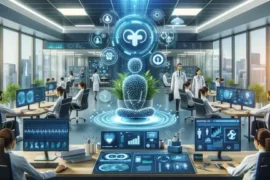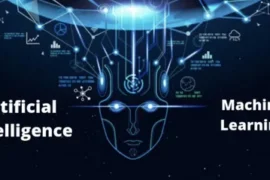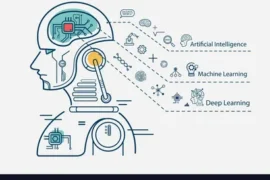Introduction
Artificial Intelligence (AI) is rapidly transforming industries across the globe, and healthcare is no exception. From automating routine tasks to diagnosing complex conditions, AI holds the potential to revolutionize the way healthcare is delivered.
However, as this transformation unfolds, it is essential to understand the multifaceted effects AI has on the healthcare system, particularly on doctors and healthcare workers. While AI brings remarkable improvements in efficiency, precision, and cost-effectiveness, it also presents a unique set of unforeseen challenges for those at the frontline of patient care.
In this post, we will explore how AI impacts doctors, workers, and the healthcare system at large. We will also delve into the unforeseen challenges that arise as AI becomes more integrated into the medical field.
Our analysis will be divided into several key sections, each focusing on a different aspect of AI’s influence: the changing role of doctors, the impact on healthcare workers, ethical considerations, and the broader challenges facing the healthcare system as a whole.

The Changing Role of Doctors in the Age of AI
The introduction of AI into healthcare has significantly altered the role of doctors, shifting the nature of their work and reshaping the relationship between physicians and technology. Traditionally, doctors have been responsible for diagnosing and treating patients based on their clinical expertise and years of experience.
However, AI-powered tools, such as machine learning algorithms, now allow for faster and more accurate diagnoses, reducing human error and offering more personalized treatment options.
Doctors now work alongside AI, using these tools to augment their decision-making processes. For example, AI-powered imaging systems can analyze medical scans in a fraction of the time it would take a human radiologist, often detecting anomalies that could be missed by the human eye.
As a result, doctors can rely on AI to assist in their assessments, leading to better patient outcomes. Additionally, predictive analytics can help doctors foresee potential health risks and intervene earlier, creating a more proactive approach to healthcare.
However, this shift is not without its challenges. Some doctors are concerned about the over-reliance on AI and the potential for de-skilling in the profession. As AI becomes more integrated, there is a risk that physicians may lose the critical thinking and hands-on skills that have long been central to their role.
This could lead to a scenario where doctors become mere operators of AI systems, rather than active participants in patient care. Furthermore, the introduction of AI raises questions about liability. Who is responsible if an AI-powered diagnosis is incorrect – the doctor, the AI, or the developers of the AI?
Another key concern is the need for doctors to stay up-to-date with rapidly evolving AI technologies. Medical education must now incorporate training in AI, data science, and machine learning, so that future doctors are equipped to navigate this new landscape.
Without proper training, the gap between what AI can do and what doctors understand could widen, leading to inefficiencies and potential patient harm. In short, while AI can enhance the role of doctors, it also presents unforeseen challenges that must be addressed to ensure the safe and effective integration of technology into medical practice.
The Impact of AI on Healthcare Workers
Beyond doctors, AI also has profound implications for the broader workforce in the healthcare system. Nurses, technicians, administrative staff, and other healthcare workers are all experiencing shifts in their roles as AI technologies are introduced into their daily tasks.
AI-powered automation is helping to streamline many routine and repetitive tasks, such as scheduling appointments, managing patient records, and even dispensing medication. This can lead to significant improvements in efficiency and reduce the administrative burden on healthcare workers.
For example, AI-driven chatbots and virtual assistants are now capable of handling patient inquiries, freeing up time for healthcare workers to focus on more complex and value-added activities. AI can also assist in monitoring patients’ vital signs, allowing nurses to respond more quickly to changes in a patient’s condition. This level of automation and efficiency can improve the overall quality of care, reduce burnout among workers, and optimize resource allocation within hospitals and clinics.
However, as with doctors, there are unforeseen challenges that arise from this integration of AI. One of the biggest concerns for healthcare workers is job displacement. As AI takes over more tasks, some workers may find their roles becoming obsolete or redundant.
For example, AI-powered diagnostic tools may reduce the need for certain types of medical technicians, while automated systems may replace administrative positions. While AI can help workers focus on more meaningful and complex tasks, there is a genuine fear that many will be left behind if they do not possess the skills required to adapt to an AI-driven workplace.
In addition, healthcare workers must contend with the challenge of maintaining human interaction in an increasingly automated environment. AI may be able to perform certain tasks more efficiently, but it cannot replicate the empathy, emotional intelligence, and personalized care that human healthcare workers provide.
Patients, particularly those with chronic or life-threatening conditions, still rely on the comfort and support of human caregivers. As AI takes on more responsibilities, healthcare workers must find ways to balance technology with the human touch to ensure that patient care remains compassionate and holistic.
Finally, the introduction of AI creates a demand for new skill sets among healthcare workers. They will need to develop a deeper understanding of how AI systems work, how to interpret the data provided by AI tools, and how to collaborate effectively with AI in their daily work. Continuous education and training programs will be essential to help workers navigate this shift and prevent the creation of a technological divide within the healthcare workforce.
Ethical Considerations and AI in Healthcare
As AI becomes more embedded in the healthcare system, it raises important ethical questions that doctors, workers, and healthcare institutions must grapple with. One of the most significant concerns is the issue of data privacy and security. AI relies heavily on vast amounts of patient data to function effectively.
This data, which includes sensitive medical records, personal information, and genetic data, must be protected to prevent breaches and misuse. Healthcare organizations must implement robust cybersecurity measures to safeguard patient data while ensuring that AI systems can access the information they need to provide accurate diagnoses and treatments.
There is also the question of bias in AI algorithms. AI systems are only as good as the data they are trained on, and if that data is biased, the AI’s recommendations and decisions may also be biased. This could lead to unequal treatment of patients based on factors such as race, gender, or socioeconomic status.
For example, an AI system trained primarily on data from affluent populations may not perform as well when diagnosing conditions in lower-income or minority communities. To address this issue, developers must ensure that AI systems are trained on diverse and representative datasets and that they are regularly audited for fairness and accuracy.
Another ethical challenge is the potential for AI to dehumanize healthcare. While AI can improve efficiency and accuracy, it risks reducing patients to mere data points. Healthcare is, at its core, a human-centered profession, and there is a danger that AI could erode the doctor-patient relationship by prioritizing algorithms over individualized care. Doctors and healthcare workers must remain vigilant to ensure that AI is used as a tool to enhance, rather than replace, the human elements of care.
Lastly, there is the question of accountability in AI-driven healthcare. As AI systems take on more responsibility for diagnosing and treating patients, it becomes increasingly difficult to determine who is accountable when things go wrong. If an AI system makes a mistake, who is liable? The doctor who relied on the AI, the institution that implemented it, or the developers who created the system? Clear guidelines and regulations must be established to address these questions and ensure that patients receive safe and reliable care.
The Unforeseen Challenges Facing the Healthcare System
While AI has the potential to transform healthcare in positive ways, it also introduces several unforeseen challenges for the healthcare system as a whole. One of the most significant challenges is the financial cost of implementing AI technologies.
AI systems require significant upfront investment in terms of infrastructure, hardware, software, and training. For smaller healthcare facilities and clinics, these costs may be prohibitive, leading to disparities in access to AI-powered care between large, well-funded hospitals and smaller, rural clinics.
In addition, the rapid pace of AI development presents a challenge for regulatory bodies and policymakers. Healthcare is a highly regulated industry, and any new technology must undergo rigorous testing and approval processes to ensure patient safety.
However, the traditional regulatory framework may struggle to keep up with the fast-evolving nature of AI. This could result in delays in the adoption of beneficial AI technologies or, conversely, the premature deployment of untested systems that pose risks to patients.
Another unforeseen challenge is the potential for AI to exacerbate existing inequalities in healthcare. While AI can improve access to care by enabling remote diagnostics and telemedicine, it also requires access to advanced technology and high-speed internet.
For patients in underserved or rural areas, this may not be feasible, leading to a widening of the healthcare gap. Moreover, if AI systems are primarily developed and tested in wealthy, urban hospitals, they may not perform as well in resource-limited settings.
Finally, the integration of AI into healthcare raises questions about the long-term sustainability of the healthcare workforce. As AI takes on more tasks traditionally performed by humans, the healthcare system must strike a balance between leveraging technology for efficiency and maintaining meaningful employment opportunities for doctors, nurses, and other workers.
Policymakers and healthcare institutions will need to develop strategies to support workers who may be displaced by AI, whether through retraining programs, job creation in other areas of healthcare, or social safety nets.
Conclusion
AI undoubtedly holds the potential to revolutionize healthcare by enhancing the capabilities of doctors and workers and improving the efficiency of the healthcare system. However, as we have explored in this post, the integration of AI also brings with it a host of unforeseen challenges.
From the changing roles of doctors and healthcare workers to ethical dilemmas and systemic hurdles, these challenges must be carefully navigated to ensure that AI delivers on its promise without compromising the quality of care.
The future of healthcare lies in finding a balance between human expertise and AI-driven technology. As we move forward, it is crucial that doctors, workers, and healthcare institutions work together to harness the power of AI while addressing the challenges it presents.
We invite you to share your thoughts on how AI is affecting healthcare in the comments below. What do you think are the biggest challenges, and how can we overcome them? Your insights are valuable in shaping the future of healthcare!




